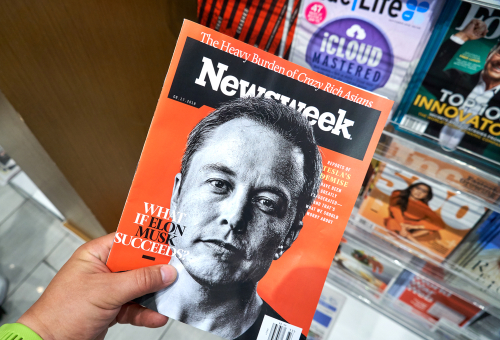Elon Musk has ignited a firestorm of controversy by exposing what he describes as genocidal rhetoric against white farmers in South Africa. The Tesla and SpaceX CEO recently highlighted inflammatory statements from Economic Freedom Fighters leader Julius Malema, including chants of “Kill the Boer, Kill the Farmer.” Musk’s intervention has brought international attention to the plight of white South African farmers amid allegations of targeted violence and discriminatory government policies, raising questions about media coverage and global response to what some are characterizing as the early stages of ethnic cleansing.
Musk Exposes Anti-White Rhetoric in South Africa
Elon Musk, who was born in South Africa, has used his massive social media platform to spotlight what he describes as a dangerous political climate for white South Africans, particularly farmers. Musk shared a video of Julius Malema leading supporters in chants that appear to call for violence against white farmers, known as Boers. The tech billionaire questioned the lack of international outrage over such rhetoric, suggesting a troubling double standard in how racial violence is reported and condemned globally.
#ElonMuskVersusJuliusMalema#FierceRacismStormEngulfsSA
Elon Musk, the wealthiest high tech entrepreneur on earth whose innovations are changing the world and a special United States government employee, has sparked fierce outrage in his original homeland of South Africa and… pic.twitter.com/j7ZMJfApic— TheNewsHawks (@NewsHawksLive) February 10, 2025
“Very few people know that there is a major political party in South Africa that is actively promoting white genocide,” Musk stated, expressing frustration over what he perceives as deliberate media silence on the issue. “A whole arena chanting about killing white people. Where is the outrage? Why is there no coverage by the legacy media?” His comments have resonated with many concerned about the safety of white farmers in South Africa, where farm attacks have become increasingly common.
Controversial Land Expropriation Law
Adding to the tensions is a new South African law that allows for the expropriation of property without compensation, which critics argue disproportionately targets white landowners. Musk has drawn attention to this legislation, suggesting it represents legalized discrimination. The South African government maintains that the law is designed to address historical injustices stemming from the apartheid era, when black South Africans were forcibly removed from their lands.
The likely future leader of South Africa calls for genocide of the 4 million whites who live there https://t.co/MNEzOUaN1L
— Elon Musk (@elonmusk) February 7, 2024
President Trump has responded to these developments by ordering cuts to U.S. aid to South Africa, signaling disapproval of the country’s land policies. Trump’s administration has expressed concern that the expropriation law could further destabilize the country and potentially lead to increased violence against white farmers, who have historically played a significant role in South Africa’s agricultural sector.
Rising Violence Against White Farmers
Statistics indicate that white South African farmers face significant security threats. In 2022 alone, reports documented over 300 attacks on farms, resulting in approximately 50 murders. These attacks are often characterized by extreme brutality, raising concerns that they may be motivated by racial animus rather than routine criminality. Musk has argued that these attacks, combined with inflammatory political rhetoric, constitute evidence of a potential genocide developing under the world’s nose.
“The legacy media never mentions white genocide in South Africa because it doesn’t fit their narrative that whites can be victims,” Musk stated, suggesting that ideological biases prevent proper coverage of the issue. This claim has sparked debate about media objectivity and the selective application of concern for human rights based on the racial identity of victims.
Musk has also alleged that his Starlink satellite internet service has been prevented from operating in South Africa due to his race. According to Musk, this prohibition represents another example of discrimination against white South Africans, further limiting their economic opportunities and connections to the outside world.
International Response and Documentation Efforts
Several independent voices have attempted to document the situation facing white South African farmers. Right-wing activist Lauren Southern produced a documentary examining farm murders, while Tucker Carlson interviewed Afrikaner activist Dr. Ernst Roets about the challenges facing the Afrikaner community. These efforts have helped bring international attention to an issue many mainstream media outlets have been reluctant to cover extensively.
The controversy surrounding Musk’s comments highlights the complex intersection of historical injustice, contemporary politics, and racial tensions in post-apartheid South Africa. While the country has made significant strides toward racial reconciliation since the end of apartheid in 1994, deep divisions remain over issues of land ownership, economic opportunity, and the path toward a truly equitable society that respects the rights and safety of all citizens regardless of race.

